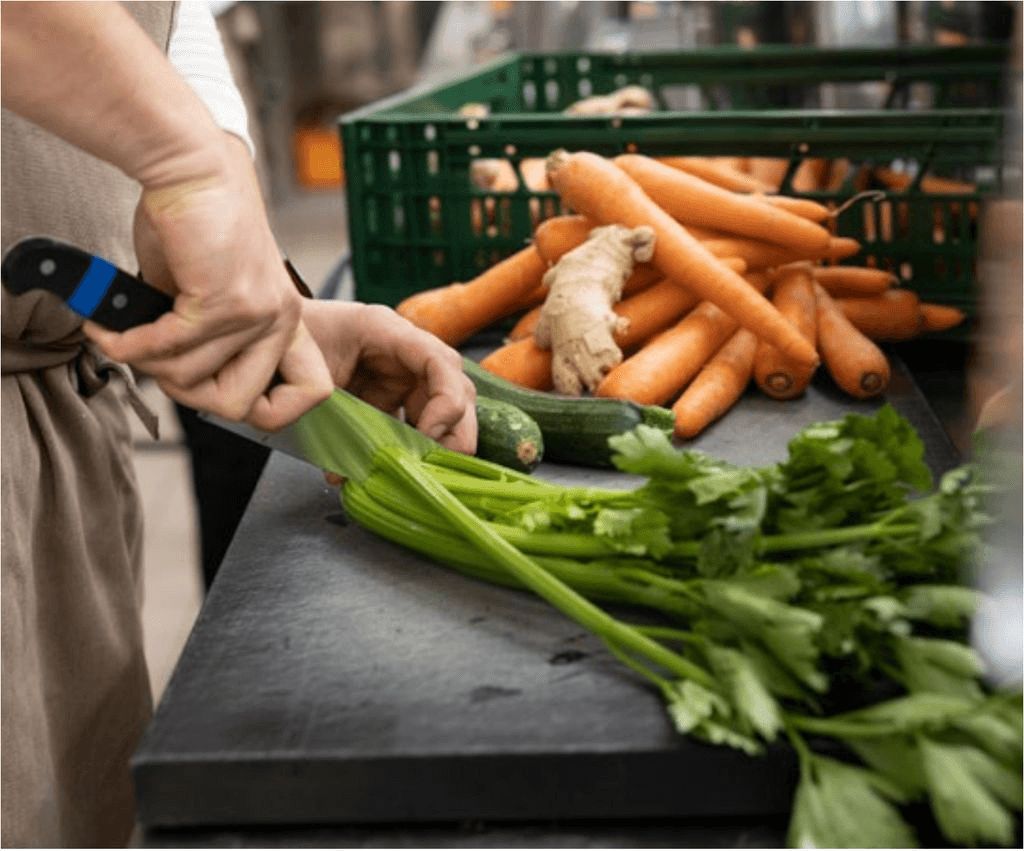Waste and recycling
Pandox wants to encourage a more circular approach to material selection and waste management. Pandox's own hotel operations generate waste mainly in the form of packaging and wrapping from purchased goods. Pandox also generate food waste.

Generation of waste and its impact
Waste is generated at several different stages within Pandox - at the hotels in day-to-day operations, in ongoing property management and in construction projects. In Pandox's own hotel operations, waste is generated mainly in the form of packaging and packaging for purchased goods. Food waste is also generated in the hotel kitchens. During renovations and remodelling, waste is generated both in the form of packaging for goods used in construction and when existing structures are demolished. This applies to all types of construction and maintenance projects undertaken - be it bathroom renovations, extensions or replacement of technical installations. Waste is also generated upstream in the value chain - in the production of the goods and materials Pandox purchases - and downstream in the value chain - by our tenants and hotel guests. Pandox engages waste and recycling companies to collect and dispose of the sorted waste.
Measures to reduce waste and increase recycling
Pandox’s target for its Own Operations segment is to reduce waste to 1.0 kg per guest night in 2025 and to the EU level of 0.6 kg per guest night by 2030. In 2024 the average was
1.0 (1.2) kg per guest night. There is also a target related to recycling whereby the hotels are to recycle 65 percent by 2025 and reach the EU level of 85 percent by 2030. In 2024 this level was 52 (57) percent. This data includes 15 hotels, which corresponds to 90 percent of the hotels that report environmental data.
Food waste represents on average 4-12 percent of food costs for hotels. This means financial losses, and it contributes negatively to greenhouse gas emissions. Since 2019, Pandox has been working with a foodtech system that categorises and registers all food that is thrown away, enabling hotels to identify what types of food are wasted, and whether waste occurs before or after consumption. The aim is to increase knowledge about overproduction and improve purchasing planning. In addition, different methods are used to reduce food waste. For example, the breakfast buffet includes bulk dispensers for jam, butter and honey instead of disposable items and yoghurt machines instead of plastic packaging.
Pandox’s target is to reduce food waste by 30 percent per year at the 15 hotel properties that have installed Winnow. For 2024 the average outcome was 55 percent. In 2025 a further two hotels will install Winnow. The remaining three properties do not have the system because two hotels do not have restaurant facilities and therefore it is not relevant, while one hotel uses a different foodtech system.
Measures that have proved successful so far include the use of Too Good To Go - an app that allows hotels to sell leftover raw materials at a discounted price - and donating coffee grounds to local gardens.
Resource usage in renovation
There are plans to set targets for the sustainable use of resources in renovation, but circular economy efforts are not currently advanced enough for a concrete target to be set. The plan is to set targets within a medium-term horizon. Information gathering on the amount of purchased materials in different categories began during the year; full results are not yet available for the total weight of materials used during the reporting period, nor the percentage of biological material or weight of reused and recycled parts. Pandox is working actively to enable reporting of significant identified materials consumption.
